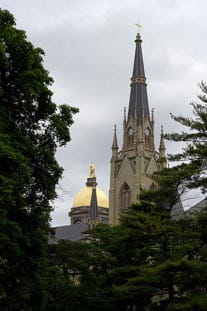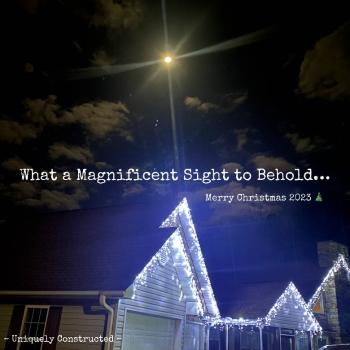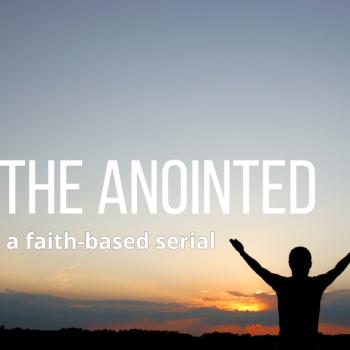 Today's academy is to a large extent beholden to economic interests: students are frequently drawn to courses and majors that will secure them a good job. A recent study by David Bloom, Henry Rosovsky, and Matt Hartley shows that the purpose of higher education has shifted over the decades. In 1969, 80 percent of all incoming freshmen felt that developing a meaningful philosophy of life was an important goal in life. By 1996, that value had dropped to 42 percent. Between 1971 and 1991, the percentage of students indicating that they were attending college "to be able to make more money" increased from 49.9 percent to 74.7 percent. In such a climate, the study of the Humanities cannot compete, and in particular religious truth claims are kept at arm's length. Interest in the true yields to interest in the useful.
Today's academy is to a large extent beholden to economic interests: students are frequently drawn to courses and majors that will secure them a good job. A recent study by David Bloom, Henry Rosovsky, and Matt Hartley shows that the purpose of higher education has shifted over the decades. In 1969, 80 percent of all incoming freshmen felt that developing a meaningful philosophy of life was an important goal in life. By 1996, that value had dropped to 42 percent. Between 1971 and 1991, the percentage of students indicating that they were attending college "to be able to make more money" increased from 49.9 percent to 74.7 percent. In such a climate, the study of the Humanities cannot compete, and in particular religious truth claims are kept at arm's length. Interest in the true yields to interest in the useful.
When the key goal is graduating students for a job market, departmental requirements squeeze and eventually crowd out disciplines that once formed the heart of academic life, especially the Humanities. Scholars in those squeezed departments must increasingly defend their pursuits, often by imitating scholars in the "useful" fields.
When theology begins to look a lot like sociology ("what do people really believe?" rather than "what is the truth about God?"), corporations can use that information to shape marketing efforts. When philosophy begins to look a lot like science ("how does the brain work?" rather than "how can we know truth?"), technological gurus can adapt websites to draw the eye more effectively to items being sold. When literature begins to look a lot like psychology ("how has this text shaped contemporary attitudes toward x?" rather than "what can Dickens teach us today?"), politicians can develop effective strategies for the next election campaign.
In short, when economic interests trump the pure desire to pursue truth in all its forms -- literary, artistic, philosophical, theological, scientific, and so on -- what emerges is a weak kind of vocational training, which smothers faith and isolates it to the realm of the deeply (and exclusively) personal, which is another way of saying that what matters is what produces visible benefit, and the rest is private preference.
It is no surprise, then, that one contemporary U.S. response to such market-driven learning is the "Religious Ghetto College" (RGC). There are many that cross religious lines, Protestant and Catholic. They begin with the conviction that the Bible (or, in Catholic cases, the Magisterium of the Church) is always right, and the role of the college/university is to explore its implications.
From the perspective of mainstream academia, this starting point is inadmissible: everything must be open to question in the spirit of free inquiry. The RGC response is that unrestrained free inquiry leaves everything up in the air and puts pernicious philosophies on a par with civilization-shaping movements like the Church, and so it is more certain to build an education on principles of faith than on untested or perhaps even destructive principles.
Academia then comes back and says that it is exactly this kind of totalitarian thinking that contributed to the evils of anti-Semitism, racism, sexism, and a host of other isms, and that free inquiry allows us to start afresh with the question of how to build a good society. In short, questions about the Humanities and about religion in particular start to look a lot like political questions, with each side trying to gain an upper hand. And students are likely to be swayed by whichever opinions they encounter in the classroom, because at least in the classroom they are forced to think deeply about these questions, to move beyond the he-said-she-said rhetoric abroad in many popular media.
Is there a middle ground? Yes, and it is precisely that middle ground that was the object of study of the Catholic monastic communities that invented universities in the first place. For Catholic theology holds that the world is knowable because God created it, and that every area of study is worth pursuing because ultimately it leads us to a fuller embrace of the truth of the world -- even when it challenges our current orthodoxies, religious or political or scientific. Academic freedom arose as a way of insuring that scholars can be free to challenge these orthodoxies -- scholars like the 13th century professor Thomas Aquinas, the Dominican who, following his teacher Albert the Great, imported the pagan Aristotle to discern the nature of human behavior in the world; or scholars like the 20th century professor John Courtney Murray, the Jesuit who (among other things) served on a presidential commission amidst the Vietnam War and argued for the necessity of conscientious objection to some wars.




